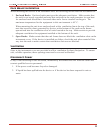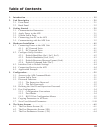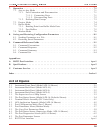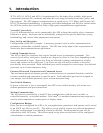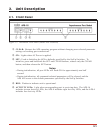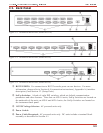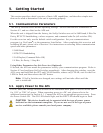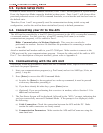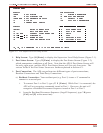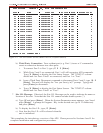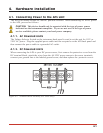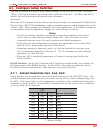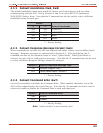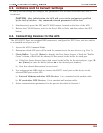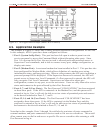
3.3. System SetUp Ports
In order to ensure access to command functions, Ports 1 and 2 are designated as System SetUp
Ports; the Supervisor Mode cannot be disabled at these ports. Ports 1 and 2 will always allow
password protected access to all APS command functions, even when the unit has been reset to
the default state.
Therefore, Ports 1 and 2 are generally used for communication during initial set-up and
configuration, or after the unit has been reinitialized (reset) to default parameters.
3.4. Connecting your PC to the APS
The APS can be controlled by a local PC directly connected to the APS, or controlled remotely
via external modem. For this overview, a local PC running ProComm (or a similar
communications program), will be cabled to Port 1.
Note: Communication via Modem (Optional): This overview can also be
performed via modem. Section 4.4 describes the procedure for connecting a modem
to the APS.
Attach a standard null modem cable to your PC COM port. Make certain to connect to the
COM port used by your communications program. Connect the other end of the cable to APS
Port 1. For a description of the port interface, please refer to Appendix A.
3.5. Communicating with the APS Unit
Perform the following procedure to access the APS Command Mode, explore basic features,
and check for proper operation.
1. Start your communications program (e.g. ProComm) and set it to 9600 bps, 8 bits, no
parity, 1 stop bit.
2. Press [Enter] to access the APS Command Mode.
a) In order for [Enter] to be recognized as a wake-up command, it must be pressed
without any characters preceding it.
b) If you have already hit other keys, press [Enter] twice.
c) (Optional) If you are performing this overview via modem, refer to Section 5.1 for
additional instructions.
3. The Port Status Screen will be displayed, followed by the "APS>" prompt, indicating that
you have successfully accessed Command Mode. If the prompt is not displayed, check
the following:
a) Cable Connection: Check the connection between the APS and the PC. Make
certain the cable connectors are firmly seated.
b) Communication Parameters: Make certain the APS and ProComm are using the
same baud rate.
3-2



